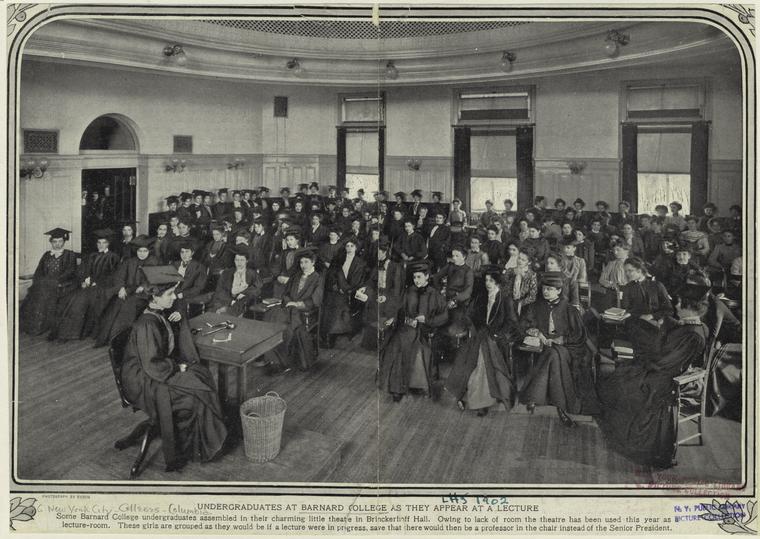Heather Cox Richardson
Next year, I’m going to have the opportunity to teach the American Civil War and Reconstruction to a small group of students at a new university. It seems like a perfect time to

try out some new approaches. I’ve been trolling through syllabi and teaching discussions on the internet, and have unearthed a couple of new ideas I think are worth entertaining:
First of all, I always organize classes backward, using my own version of the
Understanding by Design method explored by Grant Wiggins and Jay McTighe. This method requires tight organization of material to illuminate a larger point: the “take away” students should learn from a course. Every reading, every lecture, supports this larger theme (sometimes by challenging it).
A number of people use diagnostic essays early in the semester to gauge the level of student writing, but professor Lendol Calder of Augustana College in Illinois has put an interesting quirk in an early assignment that could be used to make the diagnostic essay do double duty. Calder asks students in the survey to
write a two-page essay explaining what they know about American history. His goal is less to gauge their writing than it is to see what “story” they use to organize their knowledge. Have they learned “the glory story, the people versus the elites,” or that the story of America is that of “high ideals/mixed results”? This twist on the diagnostic essay would fit particularly well with a course on the Civil War, since so many students come to such a course with fervent views of the conflict, but it seems like it would work well with a number of courses.
And then
there’s this gem. I’m afraid I might have to break down and switch to a Mac to be able to use this timeline. Constructed carefully—and yes, it will take ages, I’m sure—this would free up a great deal of time I used to use lecturing, enabling us to spend more time analyzing primary documents.
What about assessments? I’m still not sure about them, or rather, I’m even less sure about them than I am about the other aspects of the course. For an upper division course on American history, a long paper based in primary research is a no-brainer. Americanists have the great luxury of being able to send students to almost limitless primary sources that are in a language

they speak. There’s no reason not to let them experience the excitement of their own research and having the fun of writing it up. (There will soon be similar reason to celebrate for people
studying British history, too.)
But what about exams? I’ve written before about team research projects, and I do like the idea of assigning teams of people to research a topic. In this era, knowing how to find information, weigh it, and assimilate it into an argument seems crucial. But for a topic as widely covered as the Civil War, is it possible to come up with interesting assignments that will really require significant teamwork?
The same friend who has tried cooperative work has also tried exams that place the student directly in the era being studied, as in: “You are a 25-year-old man from southern Ohio, visiting New York City on July 12, 1863. How will you spend the day?” In this example, a student would have to understand the history that made southern Ohioans tend to be Democratic and sympathize with the South, and would have to realize that the young man would arrive in New York City in the middle of the Draft Riots that pitted Democrats against Republicans, local government against the national government, and workers against African Americans. I have not yet heard how the experiment went when my friend tried it. It seems to me to have great potential, but also the chance of getting some utter fantasies that would be incredibly irritating.
It’s a wonderful thing to have so many new tools for teaching. Perhaps most of all, it’s wonderful to have the intellectual space to try new approaches. If anyone else has been kicking around new ideas, do let the rest of us know.
 controversy and debate that Mark Bauerlein's essay in the Chronicle will likely provoke ("The Research Bust," December 4). The amount of time that literary studies scholars spend on articles and books, he says, just isn't paying off. One major problem: overproduction.
controversy and debate that Mark Bauerlein's essay in the Chronicle will likely provoke ("The Research Bust," December 4). The amount of time that literary studies scholars spend on articles and books, he says, just isn't paying off. One major problem: overproduction.















